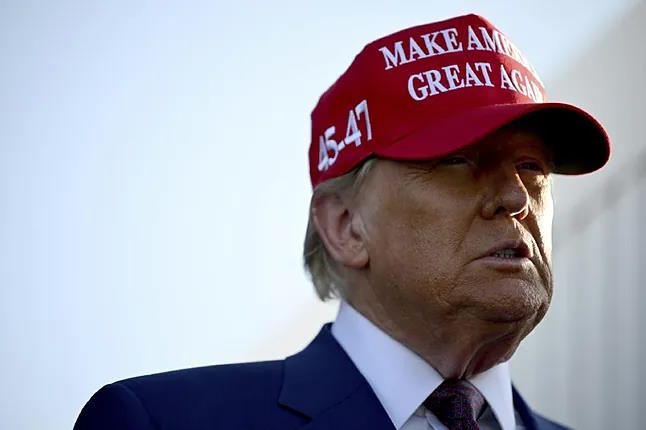Just a few weeks ago, Donald Trump's legal outlook was very bleak. He was awaiting sentencing - finally suspended - in the case of payments to the porn actress Stormy Daniels, which made him the first president to be convicted in a criminal case in US history. He had ongoing cases in Georgia for maneuvers to try to have State authorities "find" 10,000 votes for him to win. And above all, he faced the process led by special prosecutor Jack Smith, who managed to convince a grand jury that there was more than enough evidence to prosecute Trump for all the maneuvers he orchestrated to remain in the White House. Including the Capitol riot. However, that outlook has now completely dissipated (at least for the next four years) and the path is completely clear for the president-elect.
This Monday, Jack Smith, whose department will come under the supervision of one of Trump's personal lawyers in early January, and who has clear next steps, has asked the judge to dismiss the charges and close the case after many months of work. The first blow came in July from the Supreme Court, which ruled that a sitting president has almost total immunity for their "official acts," forcing a restructuring of the case and disregarding some evidence and witnesses. The final blow came from the election results.
"The department's policy that sitting presidents cannot be prosecuted is categorical and not dependent on the seriousness of the alleged crimes, the strength of the government's evidence, or the merits of the accusation, which the government fully supports," writes Smith in his submission to the Court. "Based on the department's interpretation of the Constitution, the government requests dismissal without prejudice to substitute charges." Smith leaves the door slightly ajar for the charges to be refiled once Trump completes his second and final term, according to the Constitution. But that seems unlikely and too far off.
"The country has never faced a circumstance like this, where a grand jury has brought federal charges against a private citizen and a criminal process is already underway when the accused is elected president," the prosecutor says resignedly, having endured pressure for 16 months, becoming the number one enemy of Trump's legal team. Ironically, that same team will take over the Department of Justice in January. "Given this unprecedented situation (...), the Department has determined that previous opinions on the constitutional prohibition of charging and prosecuting a sitting president apply to this situation and, as a result, this process must be dismissed before the accused assumes office," the motion states.
Smith had until December to make a decision, but the fact that he did so quickly seems to be a clear sign that he will conclude his investigation and leave his position before Trump's team takes control of the Department of Justice and before being dismissed and reprimanded. Today, he also asked the appeals court in Atlanta, which is investigating Trump for failing to provide the required documentation since leaving office, to conclude as well, but Georgia prosecutors do intend to continue prosecuting Trump's two co-defendants, Walt Nauta and Carlos DeOlivera, who have neither immunity nor protection under constitutional doctrine.
Last week, the New York judge who was to sentence Trump in the porn actress case also indefinitely postponed his decision, which if it ever comes, will not be during the next four years.
Last year, Trump pleaded not guilty to federal charges of carrying out a "criminal scheme" to overturn the results of the 2020 election, compiling a list of so-called "fake electors," using the Justice Department to conduct "simulated election crime investigations," attempting to persuade Vice President Mike Pence to "alter the election results," and promoting false claims during the January 6 Capitol riot, "all in an effort to subvert democracy and remain in power."
Before resigning, the special prosecutor has only one task left, to present a final report. It is not expected to contain new or unknown information, and it is not even clear if it will be able to be completed before the new president takes office, as it has to go through various intelligence service filters, a process that can sometimes take weeks.
